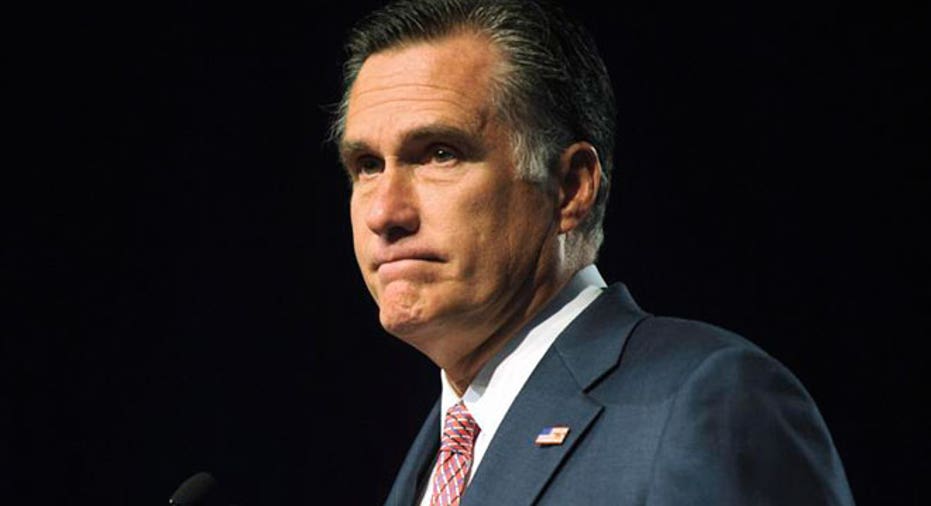Manta: Main Street Hoping for a Romney Run in 2016

The midterm elections are a few months away and politicians should be worried, at least about the small business vote, according to a new poll from Manta, the online community for small businesses.
According to the survey of 1,511 small business owners, 81% of respondents who plan to vote in the midterm elections intend to throw their support behind a challenger. While the Republican Party has typically been viewed as the biggest supporter of small business, only 32% think so right now, marking a 22% decline since 2012. The Democrats aren’t immune to the dissatisfaction either. Manta’s survey shows 26% don’t think either political party are supporters of small business, up 12% since 2012.
“We were surprised about the high percentage of small businesses that wanted change,” says John Swanciger, chief executive at Manta. “Small businesses actually have more control than they historically do.”
While the dissatisfaction among voting small business owners should be enough to keep politicians up at night, even more alarming is the unhappiness among millennial small business owners who traditionally aren’t loyal to either of the two major political parties.
According to the survey, 28% of millennials polled said none of the political parties are advocates of small businesses. While 12% of small business owners said they thought the Tea Party Movement is the biggest supporter of small business, millennials are the least likely to agree with Tea Party issues or care about the group or its plight. That may not seem like a big deal because traditionally younger people don’t come out and vote, but 67% of survey respondents did say they plan to vote in the midterm elections.
“Millennials did vote less last time around, but they are very open to wanting change,” says Swanciger. “They don’t associate with any political party, which was sort of shocking.” Half of all millennials voted in the last election, yet their anticipated turnout at the polls is less than any other generation, according to Manta. Swanciger says this survey serves as a wakeup call for politicians who have to figure out how to win back the support of small business owners.
One area that won’t help one party stand out from the other is minimum wage. Minimum wage has been a hot topic for some time now, but among small business owners, it isn’t clear cut where the group falls on the issue.
The Manta survey showed 40% of small business owners said they would vote for a candidate that proposed increasing the minimum wage, while 37% said they wouldn’t vote for a politician who wanted to raise it. Millennial entrepreneurs were the most opposed to an increase in the minimum wage, compared to any other generation, yet cite income inequality as the second biggest problem facing the country. The economy still remains top of mind for many small business owners, with one-third citing it as the biggest challenge the country faces.
In California and Florida, two states with sought after electoral votes during presidential elections, 42% of Californian small business owners and 43% of Florida-based business owners said they are in favor of an increase in the minimum wage.
And who does Main Street want to see as their next president? According to Manta, Mitt Romney, who failed in his 2012 presidential bid, is the front runner for 2016. Rand Paul, a Republican and member of the Tea Party came in second while Hillary Clinton ranked third.



















